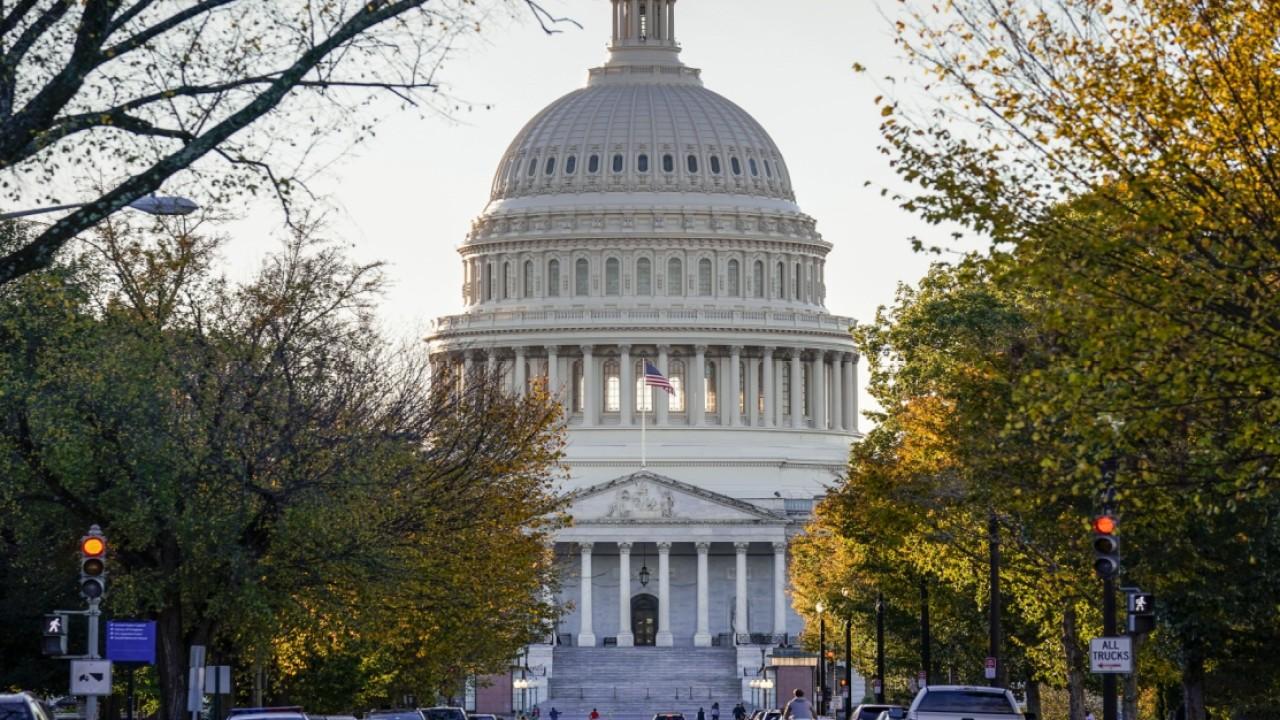Pelosi, Schumer renew push for $3.4T coronavirus relief bill, teeing up battle with McConnell
Democrats, Republicans still at odds over size of next coronavirus relief bill
Democratic leaders on Thursday renewed their push for a multitrillion-dollar coronavirus relief package, likely setting up a showdown with Republicans as the two sides remain fundamentally divided over how much money to spend on stimulus measures.
Speaking to reporters in Washington, House Speaker Nancy Pelosi -- who will see her party's majority shrink by at least six seats next year -- said she still supports an aid bill worth at least $2.2 trillion for American workers and businesses still reeling from the virus.
“We’re at the same place, even more so with the pandemic,” she said, pointing to the single-day record set for coronavirus cases on Wednesday. “Because look at those numbers."
At the same time, Senate Minority Leader Chuck Schumer said the $3.4 trillion HEROES Act that House Democrats passed in May should be the "starting point" for negotiations with the GOP and the Trump administration.
CONGRESS UNLIKELY TO PASS CORONAVIRUS RELIEF DEAL BEFORE JANUARY
“The HEROES Act should be the starting point, not an emaciated bill that prioritizes protections for corporations and considers the needs of American families as an afterthought,” Schumer said during the joint press conference with Pelosi.
For months, Congress has struggled to reach an agreement on another round of emergency relief for families and businesses after passing the $2.2 trillion CARES Act in March at the beginning of the pandemic.
Negotiations collapsed days before the Nov. 3 election, with Pelosi and Treasury Secretary Steven Mnuchin feuding publicly.
House Democrats had passed a $2.2 trillion offer — down from their initial proposal of $3.4 trillion — at the beginning of October while White House officials agreed to spend as much as $1.8 trillion. Senate Republicans, meanwhile, lobbied for a smaller $500 billion relief package. But the two sides were unable to reconcile key policy differences on issues such as a virus testing plan, aid to state and local governments and tax cuts for low- and middle-income families.
US ECONOMY ADDED 638,000 JOBS IN OCTOBER AS UNEMPLOYMENT FALLS TO 6.9%
Although lawmakers have indicated they will try to pass legislation targeted at the economic fallout from the pandemic during the lame-duck session, the period after the election but before newly elected officials are sworn in, it's unclear whether they'll be successful.
Senate Majority Leader Mitch McConnell, who will be taking the lead on virus negotiations, according to a source familiar with the talks, has suggested that Congress should pass a "highly targeted" spending package before the end of the year, similar to the $500 billion bill that has twice been rejected. Schumer called a scaled-down proposal a "non-starter."
During a press conference Friday, the Kentucky Republican pointed to GDP growth in the third quarter and the October employment report as evidence the economy is recovering faster than expected from the virus-induced downturn.
“Our economy is really moving to get back on its feet. That, I think, clearly ought to affect what size of any rescue package we additionally do,” McConnell told reporters in Kentucky last week. “Something smaller, rather than throwing another $3 trillion at this issue, is more appropriate.”
TRUMP SAYS HE WANTS A BIGGER CORONAVIRUS RELIEF PACKAGE THAN PELOSI'S $2.2T PROPOSAL
But the Democrats pointed to President-elect Joe Biden's victory over incumbent President Trump in last week's election as evidence that voters wanted lawmakers to go big on the next round of virus relief.
Down-ballot Democrats had a much more disappointing night, with Senate control hinging on two January runoffs in Georgia. If Democrats win those two races, they would secure a 50-50 tie, with Vice President-elect Kamala Harris able to cast a tie-breaking vote.
“The biggest change since Election Day is that Donald Trump, who is not for helping us in COVID and who is against the HEROES bill, has lost,” Schumer said. “So yes, we think there has been a change. It should move things in our direction.”
Lifelines that propped up the economy in the early weeks of the pandemic — like the $670 billion Paycheck Protection Program, a one-time, $1,200 stimulus check, and sweetened unemployment benefits — lapsed months ago.
On top of that, millions of laid-off workers could lose their jobless benefits altogether by the end of the year, with the enhanced unemployment benefits that Congress approved in March set to expire on Dec. 31.
GET FOX BUSINESS ON THE GO BY CLICKING HERE
While the economy has started to gradually improve -- the labor market has so far added back about half of the 22 million jobs lost in the early months of the pandemic -- there remain more than 10 million out-of-work Americans compared to February. And with surges in virus cases, economists have warned of challenging months ahead.
“We do see the economy continuing on a solid path of recovery, but the main risk we see to that is clearly the further spread of the disease here in the United States,” Federal Reserve Chairman Jerome Powell said Thursday during a panel discussion at a virtual conference hosted by the European Central Bank. “With the virus now spreading, the next few months could be challenging.”




















